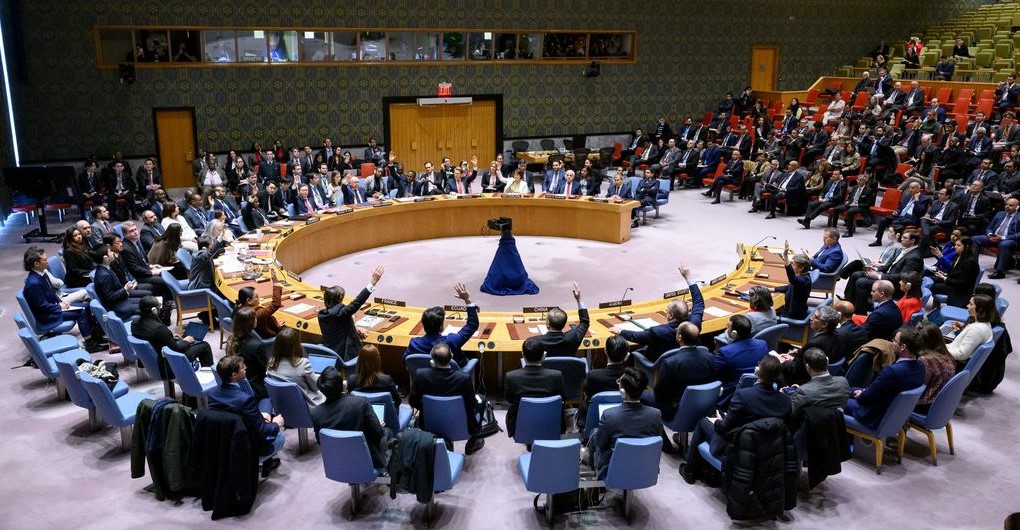The United Nations Security Council adopted on Monday a resolution on the situation in the Middle East by a vote of 14 in favour to none against, with one abstention (United States), after previous resolutions had been vetoed by the permanent members of the Security Council.
In the resolution, the Security Council expressed deep concern about the catastrophic humanitarian situation in the Gaza Strip and acknowledged the ongoing diplomatic efforts by Egypt, Qatar and the United States, aimed at reaching a cessation of hostilities, releasing the hostages and increasing the provision and distribution of humanitarian aid.
The Council demanded “an immediate ceasefire for the month of Ramadan respected by all parties leading to a lasting sustainable ceasefire”. It also demanded the immediate and unconditional release of all hostages. The two issues are not explicitly linked in the resolution but it is expected that a hostage deal, which requires a temporary cessation of the hostilities, will evolve to a prolonged ceasefire.
While supporting the resolution, the US abstained from voting for it because it failed to condemn Hamas’s surprise terrorist attack on 7 October because of Russian and Chinese vetoes. The Israeli government had wanted the US to vote against the resolution and reacted against its call for an immediate ceasefire, further deteriorating its relations with the Biden administration.
The EU leaders have twitted that they welcomed the resolution. “The UNSC resolution is fully consistent with the conclusions on the Middle East adopted by the European Council last week,” Peter Stano, EU lead spokesperson for foreign affairs, told The Brussels Times at the Commission’s daily press conference on Tuesday.
The EU has also stressed the importance of the urgent implementation of the UNSC resolution, he added. He recalled that Security Council resolutions are basically considered to be international law and should be respected and implemented by all UN members.
The two decisions are the basis of how the EU will engage and work with its partners to end the human suffering in Gaza and advance towards what it considers to be the only sustainable solution to the conflict, i.e. the two-state solution.
EU’s foreign policy chief, High Representative Josep Borrell, has stated that Hamas has no place in Gaza “the day after” and should be removed from power, including by non-military means. Asked if this is still EU’s position, Stano responded positively. “Indeed, Hamas is a terrorist organisation and there is no place for it in Gaza in the political set-up after the war.”
M. Apelblat
The Brussels Times

